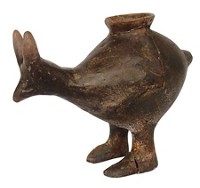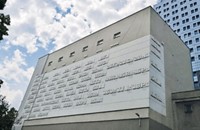Advertisement
Grab your lab coat. Let's get started
Welcome!
Welcome!
Create an account below to get 6 C&EN articles per month, receive newsletters and more - all free.
It seems this is your first time logging in online. Please enter the following information to continue.
As an ACS member you automatically get access to this site. All we need is few more details to create your reading experience.
Not you? Sign in with a different account.
Not you? Sign in with a different account.
ERROR 1
ERROR 1
ERROR 2
ERROR 2
ERROR 2
ERROR 2
ERROR 2
Password and Confirm password must match.
If you have an ACS member number, please enter it here so we can link this account to your membership. (optional)
ERROR 2
ACS values your privacy. By submitting your information, you are gaining access to C&EN and subscribing to our weekly newsletter. We use the information you provide to make your reading experience better, and we will never sell your data to third party members.
Education
Cosmonauts to Eat Italian Food, 49 Medici to Be Exhumed, Medical Reading
by K. M. REESE
May 24, 2004
| A version of this story appeared in
Volume 82, Issue 21
A pair of Russian Cosmonauts on board the International Space Station (ISS) will dine experimentally on the Mediterranean Diet (Mediet). The cosmonauts are Alexander Kaleri and Gennadi Padalka. The Mediet experiment is conducted within the framework of the European Space Agency's (ESA) commercialization program of ISS under a contract with the Federal Space Agency of the Russian Federation. The Mediet was developed by a University of Florence consortium that works on space design and architecture. COOP, one of the biggest retail chains in Italy, is supplying food for the experiment.
The experiment, ESA says, will demonstrate the use of the Mediet food system on board ISS. The system comprises an aluminum ergonomic tray with five Mediterranean foods from Italy. The foods are dried tomatoes, mature cheese, piadina bread (special Italian white bread), peaches, and chocolate. The food has passed all mandatory tests for use on Earth, ESA says, as well as the microbiological analyses required of edibles delivered to ISS.
The food is packaged in meal-sized portions, ESA says, “in special spaceflight-qualified transparent plastic bags.” It is processed with high-pressure technology that can eliminate enzymes and bacteria without changing other properties of fresh food. The method, ESA says, provides long-term storage at room temperature while retaining nutritional values, taste, texture, and color.
The food inside the bags is precut into bite-sized pieces (cheese, bread, chocolate); food that is not so cuttable is viscous enough to remain intact while weightless. The cosmonaut opens the plastic bag with scissors and impales the precut pieces with a fork; the other food in the bag remains in place—tomatoes in oil, peaches in jelly—until eaten.
In space, one cosmonaut will eat and evaluate the Mediet food in terms of odor, flavor, texture, color, and overall appearance. The other cosmonaut will videotape his companion’s dining experience. “The video material,” ESA says, “may later be used to illustrate the benefits of the new technology to the expert community and to the general public.”
A team of forensic scientists was scheduled this month to start digging up the remains of some 49 members of the Medici clan in Florence, Italy. Reporter Alan Feuer says in the May 4 New York Times that the team expects to “take tissue samples from the noble bodies hoping to deepen the understanding of ancient cancers and other illnesses and to get a sense of Renaissance funeral rites, leisure activities, and even tastes in clothes.”
The Medici family ruled Florence and later, Tuscany, during most of the years 1434–1737, according to the Encyclopaedia Britannica. The most brilliant member of the clan is said to have been Lorenzo the Magnificent (1449–92), Florentine ruler and patron of arts and letters.
The team of experts includes a mummy expert from New York and Gino Forniciari, a medical historian from the University of Pisa. Among its tasks, the team may study the deaths of Francesco de’ Medici, grand duke of Tuscany, and his wife, Bianca. The pair died suddenly, a day apart, in 1587. Official records attribute their deaths to malaria. However, Feuer reports, rumors persist that they were poisoned by Francesco’s brother Ferdinand, who later succeeded to the throne. Historian Forniciari says stories like this are “legends without a base in reality, but we will check.”
A column in the May AARP Bulletin, edited by Roberta Yared, includes a section headed “Decoding Medical Mumbo-Jumbo.” It begins, “Nearly half of American adults are jeopardizing their health because they have trouble deciphering directions on drug labels, doctors’ orders, and consent forms.” The source is a report from the Institute of Medicine.
Patients’ problems, the Bulletin says, include poor reading, poor vision, and inability to read English. The report cites medical language that “even the most educated patients have trouble decoding,” and it recommends that health types “find better ways to communicate with their patients.” And vice versa?





Join the conversation
Contact the reporter
Submit a Letter to the Editor for publication
Engage with us on Twitter